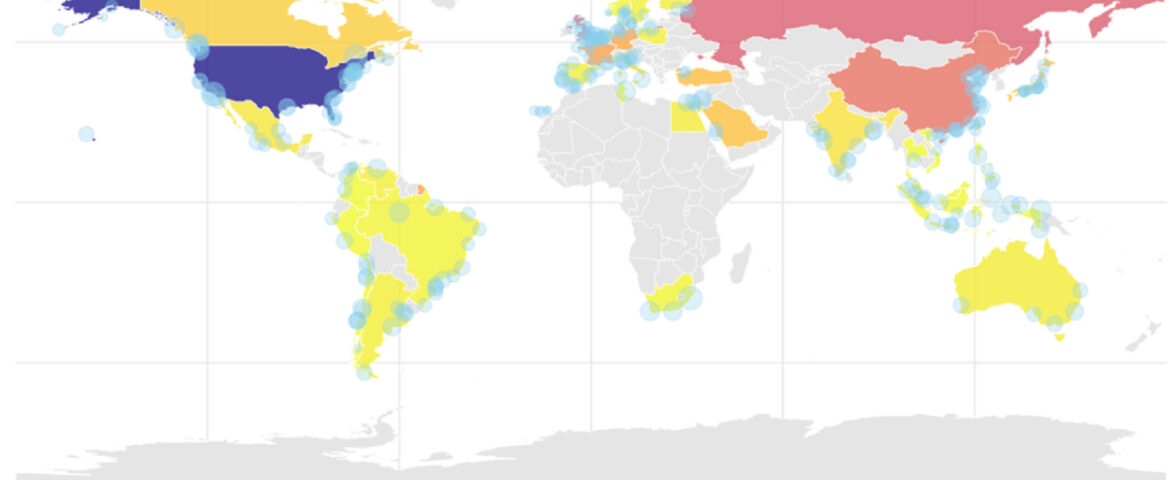The geopolitical risks and the port-related Carbon Emissions are the theme of the latest portstudy by PortEconomics member Pierre Cariou (co-authored with Chengkun Li and Dr Dong Yang) published in the scholarly journal Transport Policy.
The article addresses geopolitical risks (GPR) and their environmental implications for port-related emissions. Using a monthly panel dataset covering 269 container ports across 40 countries and regions from 2016 to 2023 and employing a system generalized method of moments (SYS-GMM) estimator, it confirms that the environmental impact of GPR is more pronounced at ports serving larger container vessels, as these ports are typically involved in long-haul routes that are more exposed to geopolitical disruptions. In contrast, the impact is less significant at ports with fewer calling carriers, likely because dominant shipping lines tend to internalize the costs of inefficient berthing by smoothing vessel arrival times.
This study provides novel empirical evidence on the environmental consequences of geopolitical shocks in the maritime sector, offering actionable policy insights for risk-sensitive and sustainable port governance.
The article can be downloaded for free here:: Chengkun Li, Pierre Cariou, Dong Yang, (2025). Geopolitical risks and port-related carbon emissions: Evidence and policy implications, Transport Policy, Volume 173, 103809.











